Aarohan 2023
Neeldhara Misra • IIT Gandhinagar

Being a successful Grad Student
Aarohan 2023
Neeldhara Misra • IIT Gandhinagar

Being a successful Grad Student
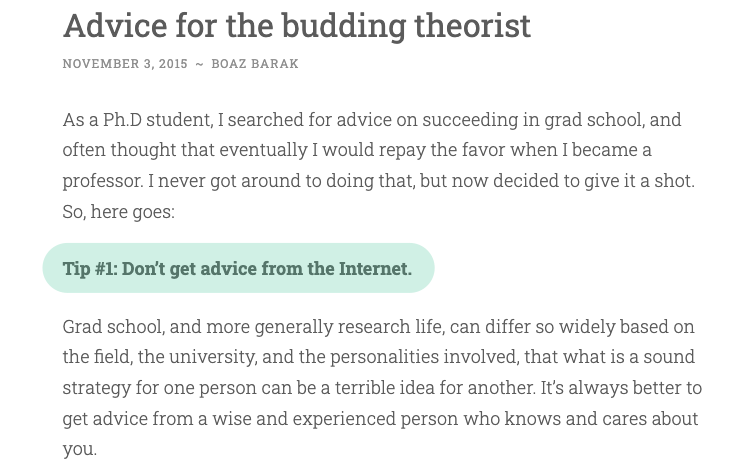
...from the Windows on Theory Blog
〞
Nobody can give you wiser advice than yourself.
– Marcus Tullius Cicero
The Balancing Acts

Act I
Breadth
V/s
Depth
Act I
Breadth
V/s
Depth
Act I
inadequately prepared
V/s
Depth
Act I
Breadth
V/s
Depth
Act I
Breadth
V/s
no big picture
Act I
Breadth
V/s
DEPTH
It helps to be organised*.
To avoid overwhelm, work backwards from how much time you have. (c.f. time blocking)
〞
Philosophers are people who know less and less about more and more, until they know nothing about everything.
Scientists are people who know more and more about less and less, until they know everything about nothing.
– Konrad Lorenz
phdcomics

Act II
Perseverence
V/s
Pivoting
Act II
Perseverence
V/s
Pivoting
Act II
stubborness
V/s
Pivoting
Act II
Perseverance
V/s
Pivoting
Act II
Perseverance
V/s
impatience
Act II
Perseverance
V/s
PIVOTING
Knowing when to quit is not easy.
Guidance + Intuition + Luck
〞
If at first you don’t succeed, try, try again. Then quit. There’s no use being a damn fool about it.
– Anonymous
Act III
Saying yes
V/s
saying no
Act III
Saying yes
V/s
saying no
Act III
overcommitted
V/s
saying no
Act III
saying yes
V/s
saying no
Act III
saying yes
V/s
miss opportunities
Act III
saying yes
V/s
SAY NO
It helps to know your priorities!
〞
If you’re not saying “HELL YEAH!” about something, say no.
– Derek Sivers
Act IV
Perfect
V/s
good enough
Act IV
Perfect
V/s
good enough
Act IV
it never gets done
V/s
good enough
Act IV
Perfect
V/s
good enough
Act IV
Perfect
V/s
careless :(
Act IV
Perfect
V/s
good enough
Know your temperament, and fine-tune if it is extreme.
Use external feedback to help with calibration.
〞
Perfect is the enemy of good.
– Proverb
Act V
Brooding
V/s
asking
Act V
Brooding
V/s
asking
Act V
Stuck & lonely
V/s
asking
Act V
Brooding
V/s
asking
Act V
Brooding
V/s
Lazy
Act V
Brooding
V/s
asking
Don't be afraid of doing your homework.
Equally, don't be afraid of asking.
Act V
Brooding
V/s
asking
Also: break things down &
celebrate small wins!
〞
How would you know well if you don't ask at all?
How would you ask well if you don't know at all?
– Martin Uzochukwu Ugwu
Act VI
Reading
V/s
Writing
Act VI
Reading
V/s
Writing
Act VI
aren't writing enough
V/s
Writing
Act VI
READING
V/s
Writing
Act VI
READING
V/s
AREN't READING Enough
Act VI
READING
V/s
Reinventing the wheel
Act VI
READING
V/s
fundamentals unclear
Act VI
Reading
V/s
Writing
The notion of a desirable proportion isn't an universal constant - and will be very contextual.
Practice both skills often early on, you'll need them all in varying degrees as you go along.
〞
I kept always two books in my pocket, one to read, one to write in.
– Robert Louis Stevenson
Act VII
luck
V/s
Work
Act VII
Luck
V/s
Work
Act VII
you have no motivation
V/s
Work
Act VII
to put in the work
V/s
Work
Act VII
& rely on eureka moments
V/s
Work
Act VII
LUCK
V/s
Work
Act VII
LUCK
V/s
failures are disappointing
Act VII
LUCK
V/s
since you take the blame
Act VII
Luck
V/s
Work
Your hard work is necessary but not sufficient.
It's good to recognise that luck is a non-zero factor in "success".
Also: there's no replacement for a solid work ethic!
〞
Not many people have had as much bad luck as I have, but not many people have had as much good luck, either.
– Tig Notaro
Act VIII
Organization
V/s
Chaos
Act VIII
Organization
V/s
Chaos
Act VIII
distracted by planning
V/s
Chaos
Act VIII
organization
V/s
Chaos
Act VIII
organization
V/s
inefficient
Act VIII
ORGANIZATION
V/s
Chaos
Leverage your natural temperament,
but if you are consistently frustrated, explore
developing the habits you need for your situation.
All you see is clutter... however.

Act iX
journey
V/s
destination
Act iX
journey
V/s
destination
Act iX
lose focus
V/s
destination
Act iX
Journey
V/s
miss the fun!
Act iX
Journey
V/s
destination
Act iX
journey
V/s
destination
Your big goals are the North Star.
Look up at the sky every so often to be sure you're on track.
But for the most part, don't forget to be present through the journey!
〞
When we make staying focused on the process our real goal, we experience a sense of success in every moment.
– Thomas M. Sterner
(The Practicing Mind)
〞
The Summit is what drives us, but the climb itself is what matters.
– Conrad Anker
Act X
Quality
V/s
Quantity
Act X
Quality
V/s
Quantity
High quality with non-zero quantity is generally OK.
High quantity with moderate quality may or may not be optimal.
Also: fairly contextual. Find out what makes sense in your field.
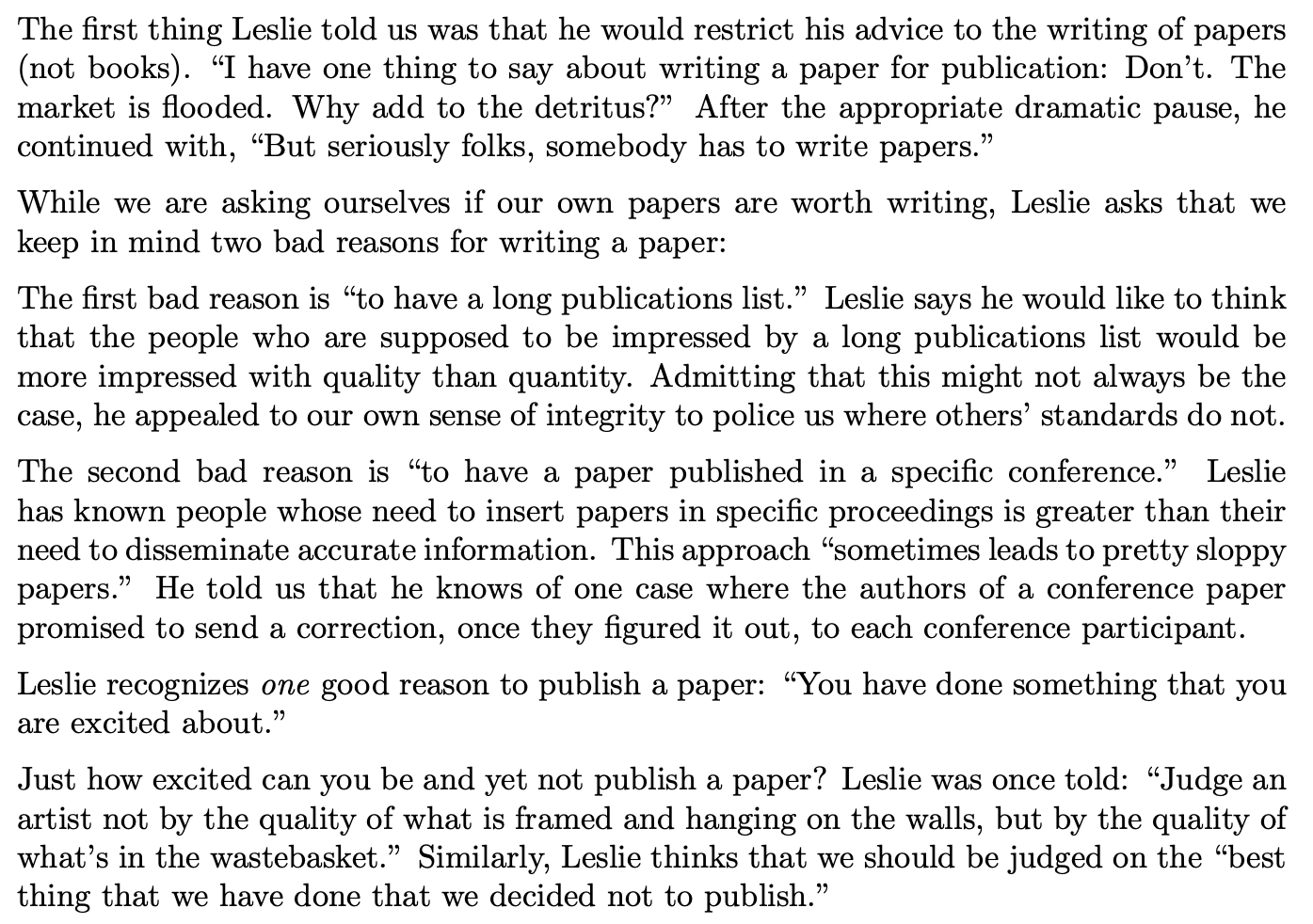
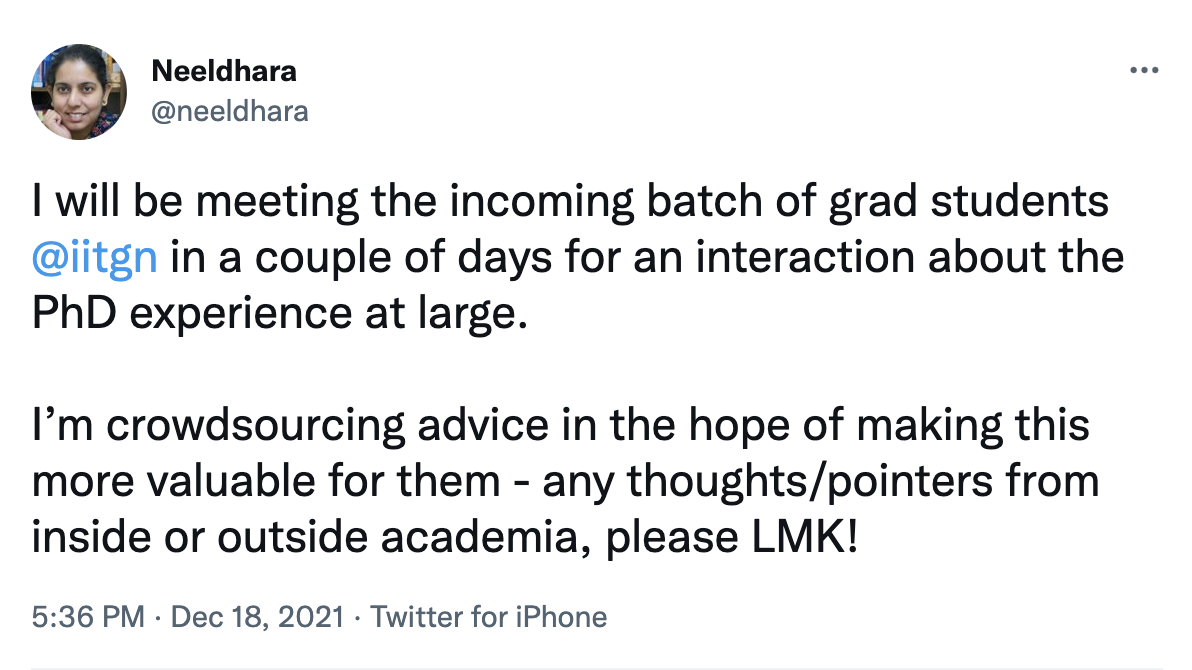
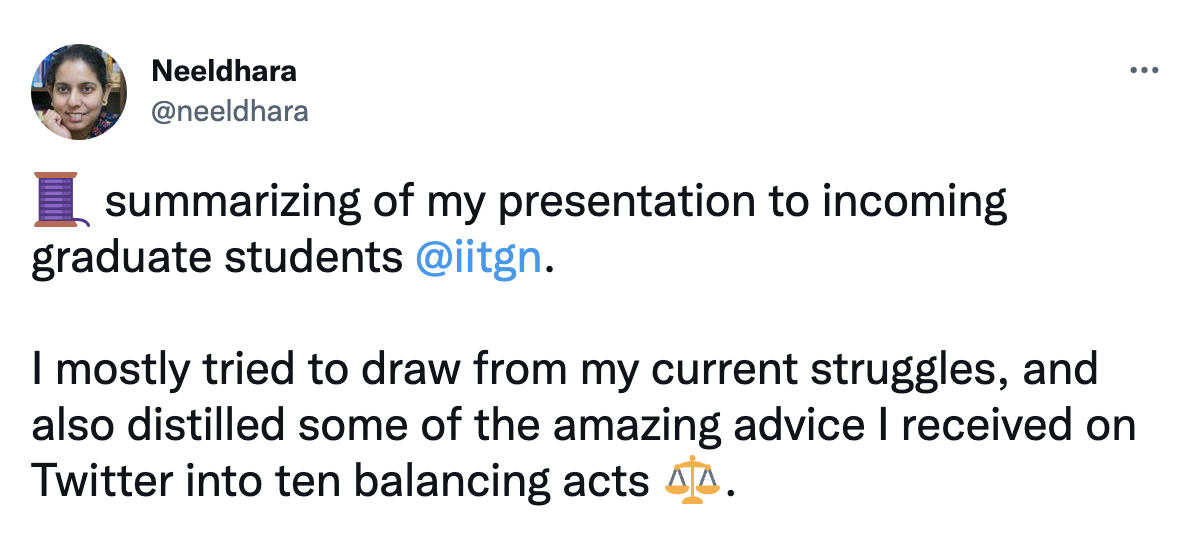
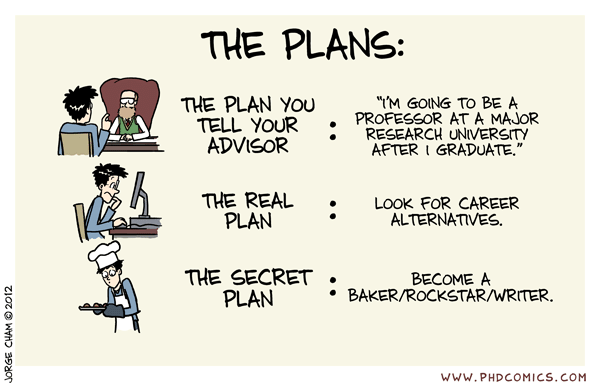
Resources
https://neeldhara.com
People
Advisor(s) ⸱ Labmates ⸱ Friends ⸱ Family ⸱ Professional Network
Institutional
Advisories ⸱ Wellbeing Initiative ⸱ Writing Studio ⸱ Sports ⸱ etc.
Imagine a circle that contains all of human knowledge:
This is The Illustrated Guide to a Ph.D., created by Matt Might,
a professor in Computer Science at the University of Utah.
[Matt has licensed the guide for sharing with special terms under the Creative Commons license.]

By the time you finish high school, you know a bit more:
This is The Illustrated Guide to a Ph.D., created by Matt Might,
a professor in Computer Science at the University of Utah.
[Matt has licensed the guide for sharing with special terms under the Creative Commons license.]


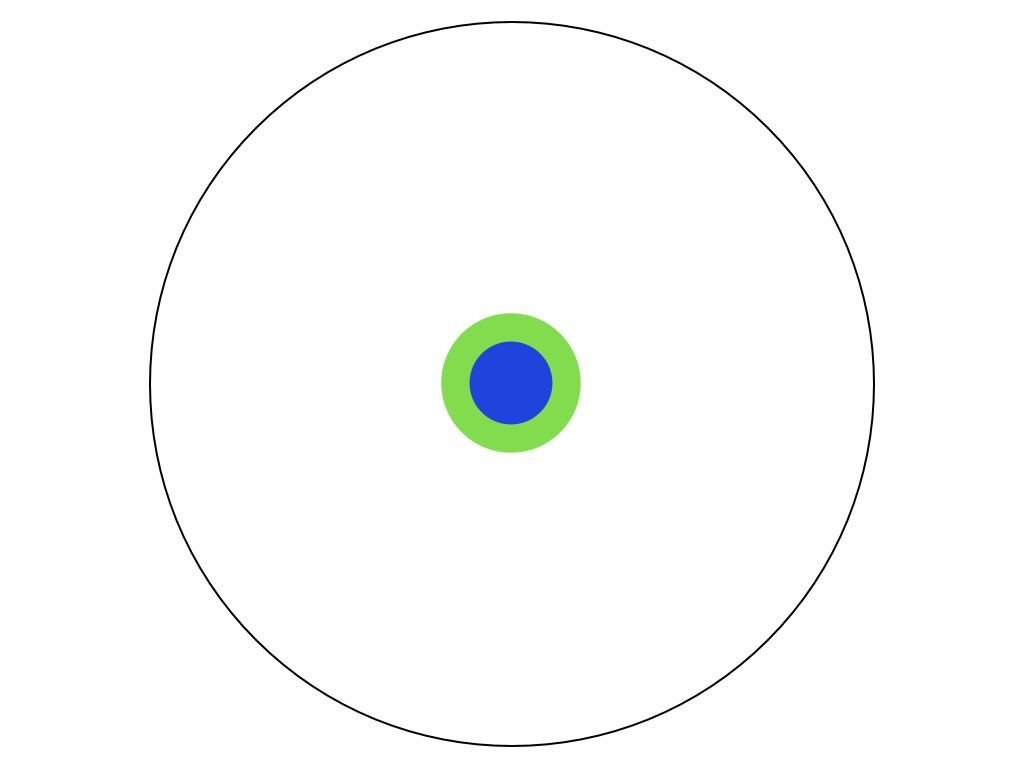
With a bachelor's degree, you gain a specialty:
This is The Illustrated Guide to a Ph.D., created by Matt Might,
a professor in Computer Science at the University of Utah.
[Matt has licensed the guide for sharing with special terms under the Creative Commons license.]



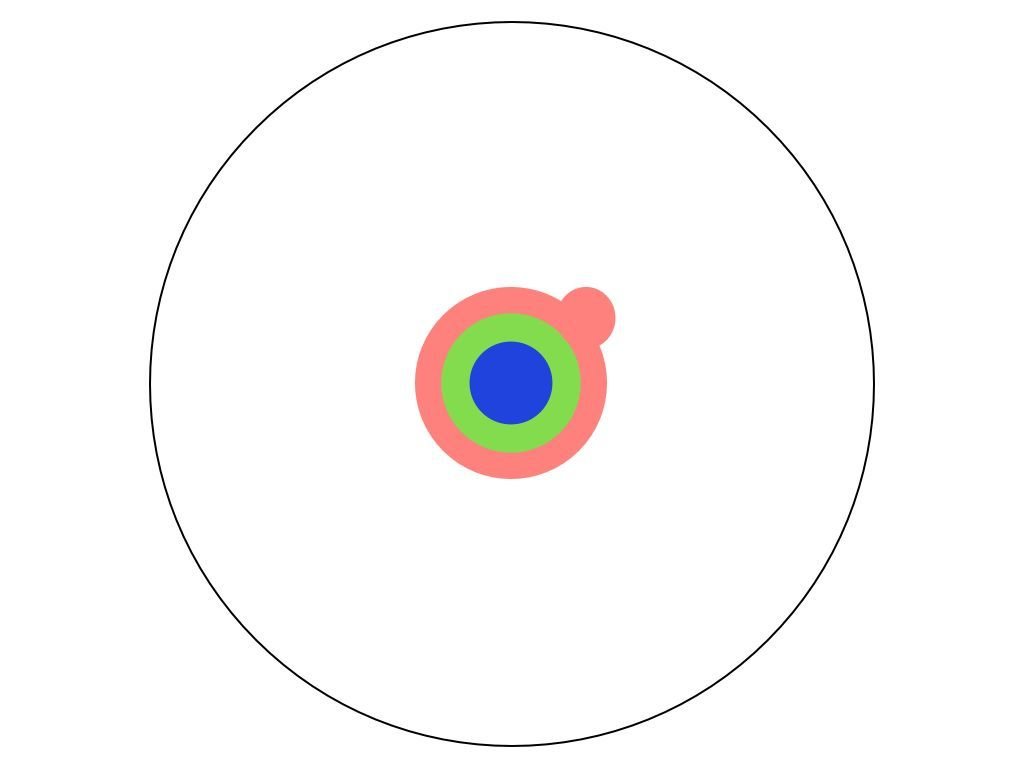
A master's degree deepens that specialty:
This is The Illustrated Guide to a Ph.D., created by Matt Might,
a professor in Computer Science at the University of Utah.
[Matt has licensed the guide for sharing with special terms under the Creative Commons license.]




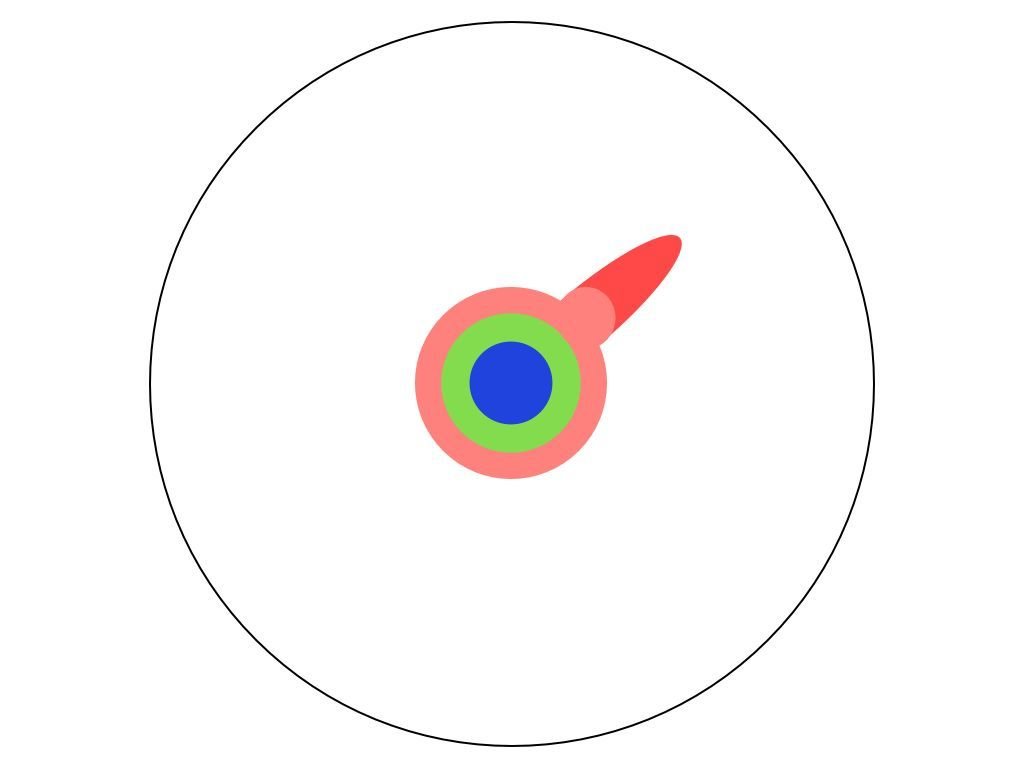
A master's degree deepens that specialty:
This is The Illustrated Guide to a Ph.D., created by Matt Might,
a professor in Computer Science at the University of Utah.
[Matt has licensed the guide for sharing with special terms under the Creative Commons license.]





Reading research papers takes you to the edge of human knowledge:
This is The Illustrated Guide to a Ph.D., created by Matt Might,
a professor in Computer Science at the University of Utah.
[Matt has licensed the guide for sharing with special terms under the Creative Commons license.]





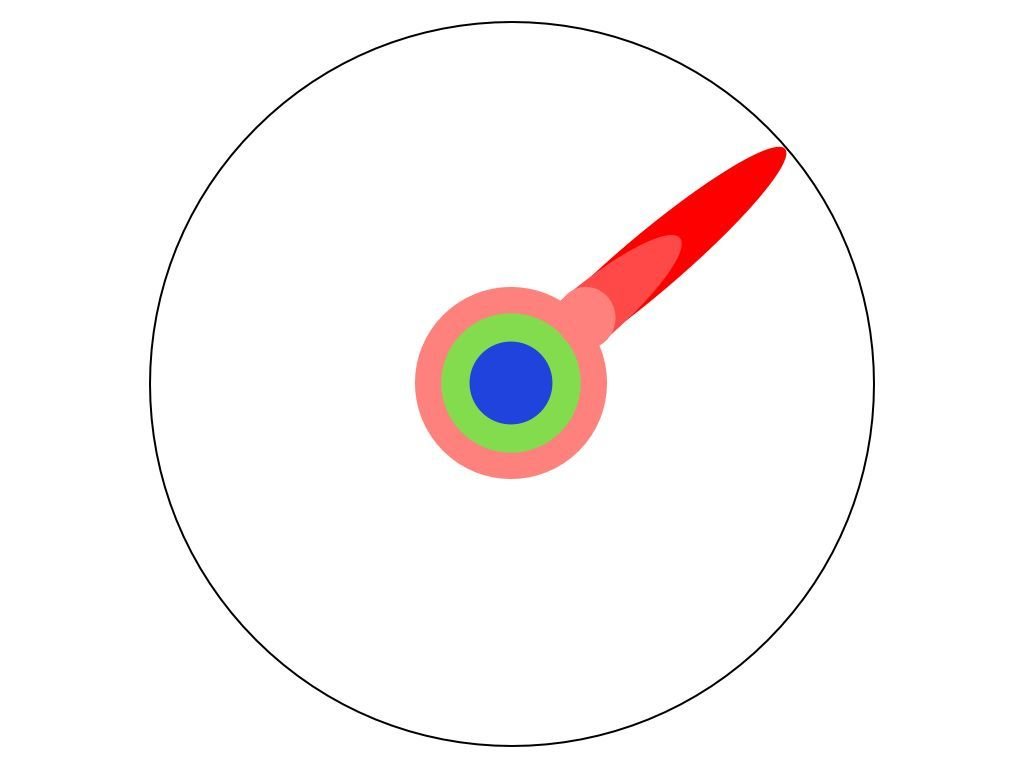
Once you're at the boundary, you focus:
This is The Illustrated Guide to a Ph.D., created by Matt Might,
a professor in Computer Science at the University of Utah.
[Matt has licensed the guide for sharing with special terms under the Creative Commons license.]


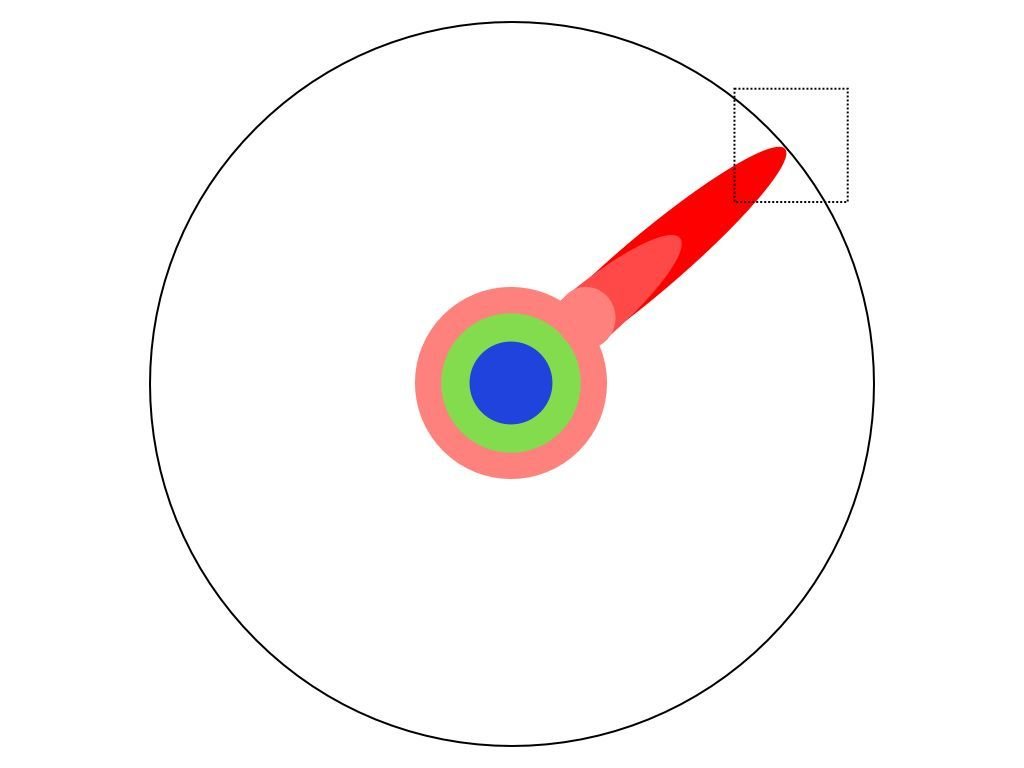
You push at the boundary for a few years:
This is The Illustrated Guide to a Ph.D., created by Matt Might,
a professor in Computer Science at the University of Utah.
[Matt has licensed the guide for sharing with special terms under the Creative Commons license.]




Until one day, the boundary gives way:
This is The Illustrated Guide to a Ph.D., created by Matt Might,
a professor in Computer Science at the University of Utah.
[Matt has licensed the guide for sharing with special terms under the Creative Commons license.]





And, that dent you've made is called a Ph.D.:
This is The Illustrated Guide to a Ph.D., created by Matt Might,
a professor in Computer Science at the University of Utah.
[Matt has licensed the guide for sharing with special terms under the Creative Commons license.]





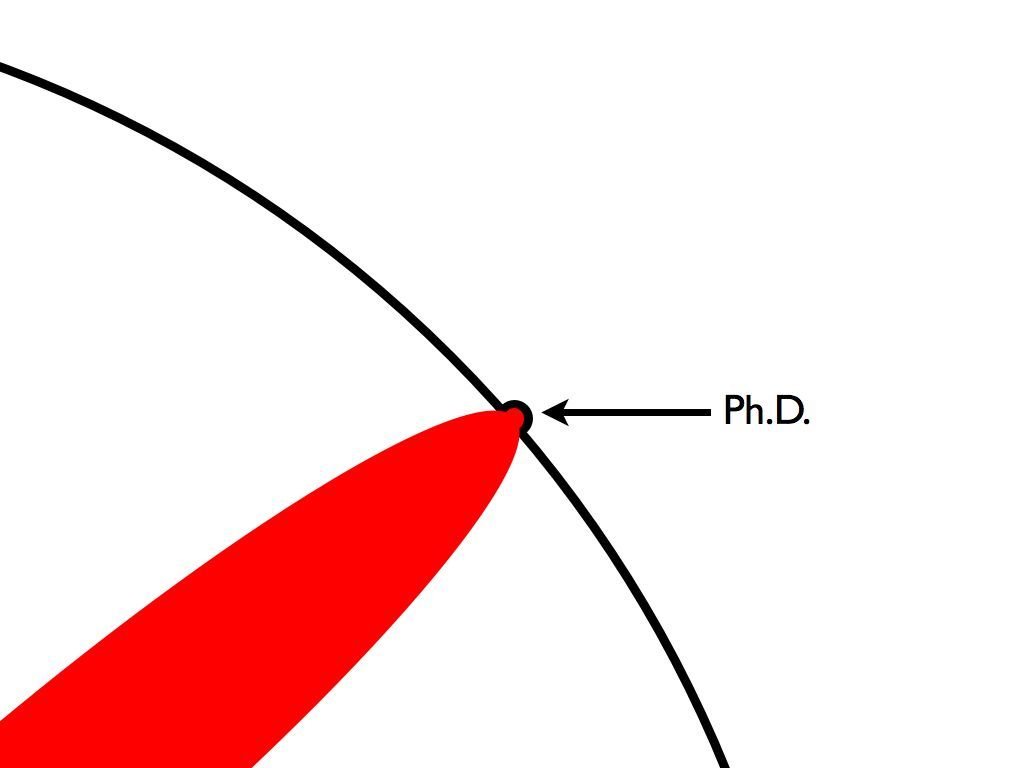
Of course, the world looks different to you now:
This is The Illustrated Guide to a Ph.D., created by Matt Might,
a professor in Computer Science at the University of Utah.
[Matt has licensed the guide for sharing with special terms under the Creative Commons license.]







So, don't forget the bigger picture:
This is The Illustrated Guide to a Ph.D., created by Matt Might,
a professor in Computer Science at the University of Utah.
[Matt has licensed the guide for sharing with special terms under the Creative Commons license.]







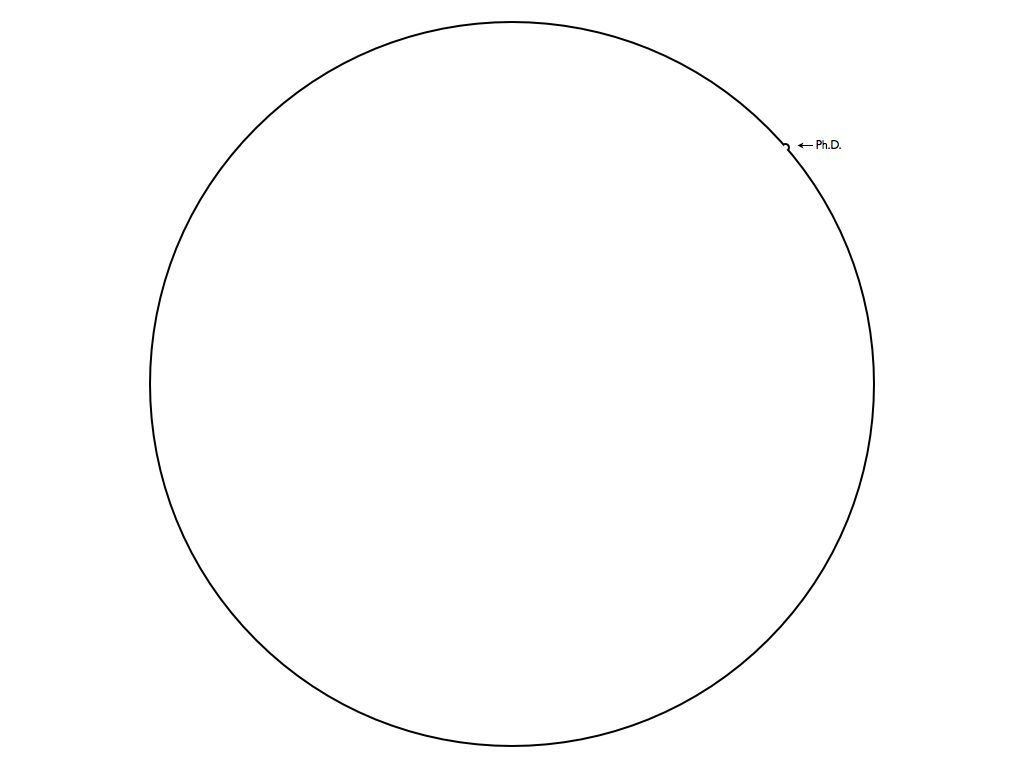
This is The Illustrated Guide to a Ph.D., created by Matt Might,
a professor in Computer Science at the University of Utah.
[Matt has licensed the guide for sharing with special terms under the Creative Commons license.]